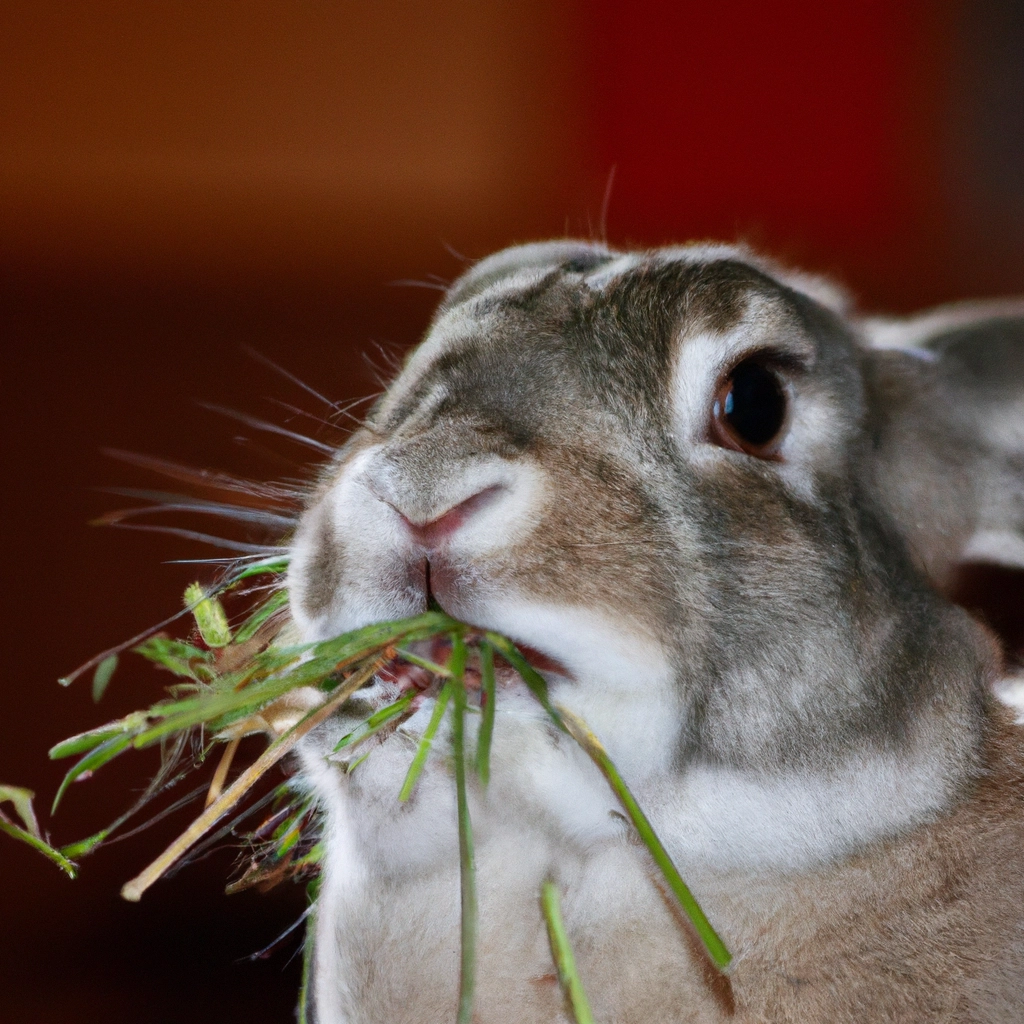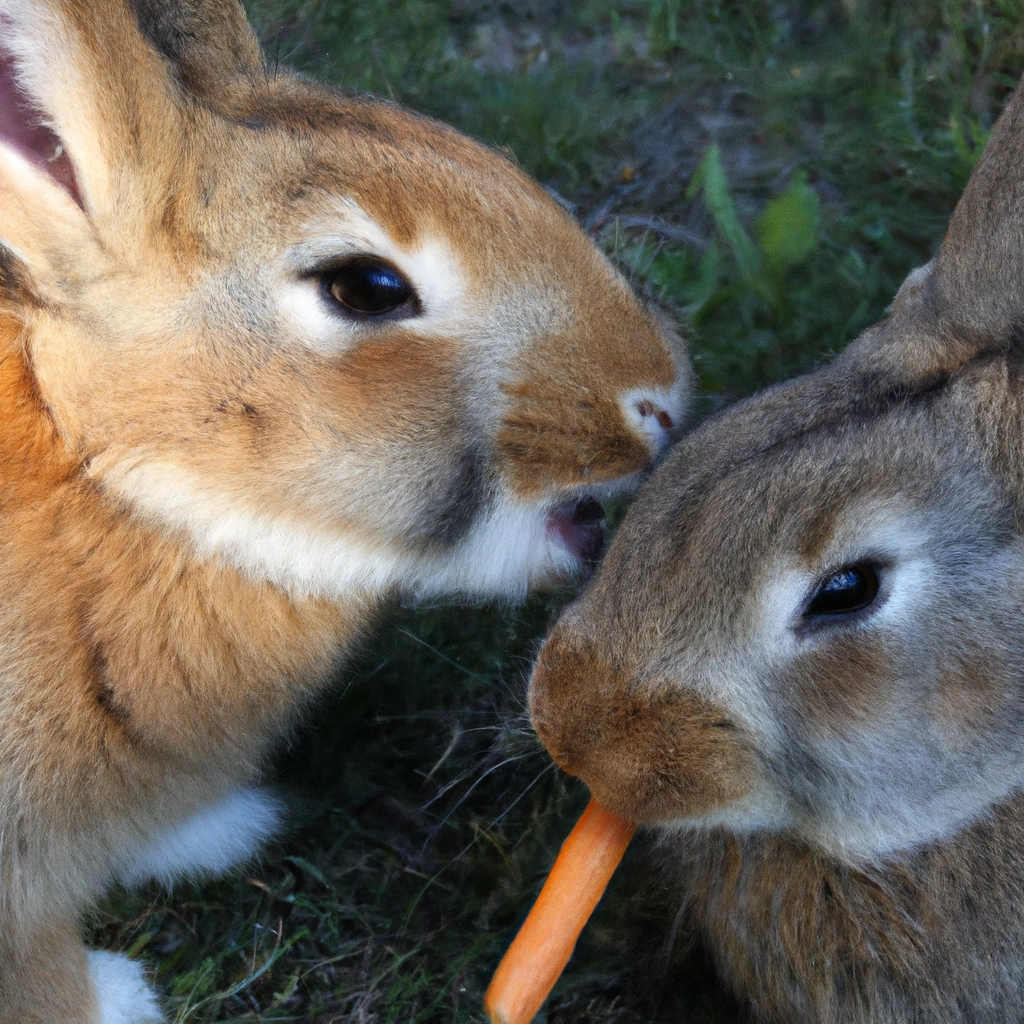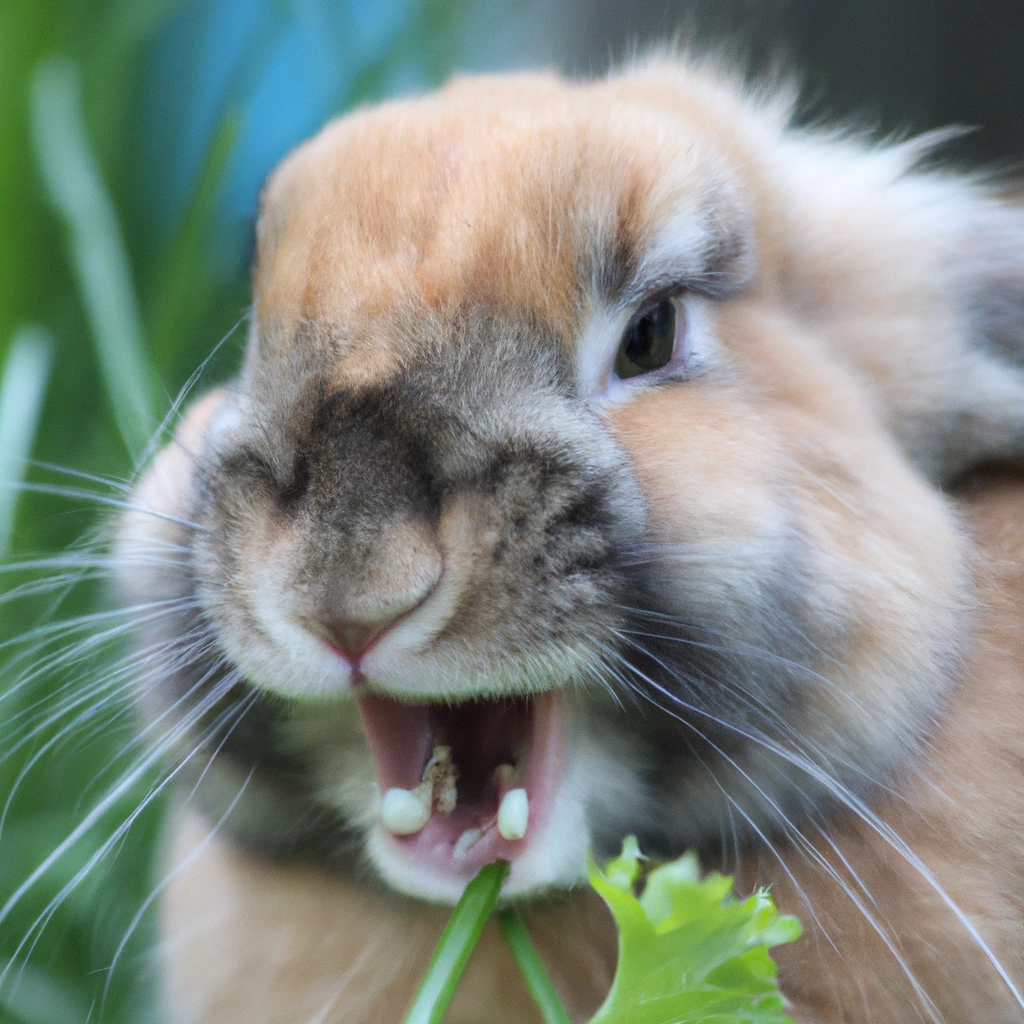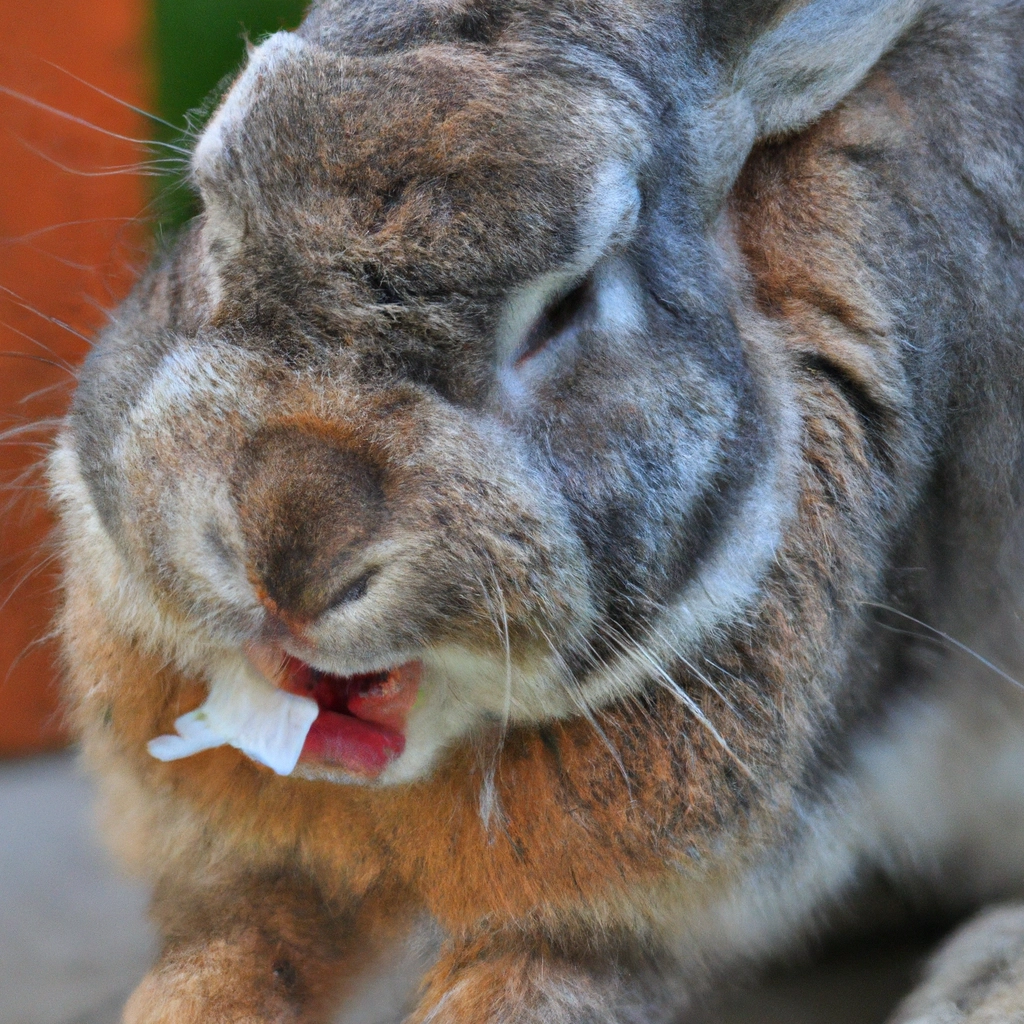| Question | Answer |
|---|---|
| Do rabbits need their teeth trimmed? | Yes, rabbits’ teeth continue to grow throughout their lives, and they need to wear them down naturally by chewing on fibrous food and toys. In some cases, dental trimming by a veterinarian may be necessary if the teeth become overgrown or misaligned. |
| How often should a rabbit’s teeth be checked? | Rabbit owners should regularly check their pets’ teeth for signs of overgrowth, malocclusion, or other dental issues. A vet should perform a thorough dental exam at least once a year. |
| What are the signs of dental problems in rabbits? | Signs of dental issues in rabbits include reduced appetite, drooling, weight loss, difficulty eating, excessive salivation, and abnormal teeth growth. |
| Can dental problems be prevented in rabbits? | Providing a high-fiber diet, offering chew toys, and regular dental check-ups can help prevent dental problems in rabbits. Avoid feeding a diet high in pellets, fruits, or treats, as they can contribute to dental issues. |
| When is dental trimming necessary for rabbits? | Dental trimming is necessary when the rabbit’s teeth are overgrown, causing pain, difficulty eating, or preventing normal tooth wear. This should be done by a qualified veterinarian. |
As someone who has had the joy of raising these fluffy companions, I know firsthand how pivotal maintaining a rabbit’s health is. They’re not just pets; they become part of your family, and like any loved one, their wellbeing is a top priority. This article isn’t just wisdom from textbooks; it’s knowledge earned from years of bunny companionship. From long-eared loafers to hoppy fur-balls, I’ve been through the warren and back when it comes to their care. Let’s hop right into the world of bunny dentistry!
Rabbit owners often wonder if their cuddly critters need dental visits like we do. While you won’t be teaching your rabbit to floss any time soon, dental health is still vital for their happiness and longevity. So, let’s munch through the details of rabbit dental care, shall we?
The purpose here is clear: to guide you through the ins and outs of keeping your rabbit’s pearly whites in top shape. What does that entail? Tag along and I’ll share everything from my personal anecdotes to expert tips.
Rabbit Teeth: The Basics
Understanding the structure of rabbit teeth is crucial. They’re not like ours; rabbit teeth are open-rooted, which means they grow continuously. A rabbit’s front incisors are what they use to nip and nibble, while the back molars grind down their grub. It’s a wonderfully effective system for an herbivorous lifestyle.
Normally, a rabbit’s diet is their natural tooth sharpener. Munching on hay and fibrous greens wears down their teeth evenly, preventing overgrowth. It’s like they have a built-in tooth care routine straight from Mother Nature. However, sometimes things can go a bit haywire, and that’s when we need to step in.
As adorable as these critters are, their teeth can encounter a warren’s worth of issues. Malocclusion—fancy talk for misalignment—can lead to points growing on the teeth, painfully poking into their little mouths. Then there’s the risk of abscesses, infection, and all sorts of dental demons. Scary stuff, but you’re not alone in this bunny battle.
Signs of Dental Issues in Rabbits
Being the observant bunny guardian you are, you’ll first notice something’s up when your rabbit’s behavior changes. Maybe they’re not as jolly, or there’s less of that energetic bounce in their step. These could be hints they’re in pain, particularly from dental discomfort.
Then there’s the eating—or lack thereof. A rabbit that’s suddenly snubbing their snacks could be struggling with sore choppers. It’s critical to catch these cues early. Monitor their eating habits closely; after all, a healthy rabbit is a hungry rabbit.
We certainly can’t ignore the drool. Yes, a dribbly bunny might be facing dental distress, not to mention grooming woes. Imagine trying to tidy yourself up with a toothache. Not fun, right? Keeping an eagle eye on these signs is your first step to ensuring your bunny’s mouth health.
Dental Care for Rabbits
Now, let’s talk tools of the trade – chew toys! Oh, but not any old toy will do. You need the right ones that mimic the wear and tear they’d get in the wild. Think untreated wood, cardboard, and all that good, gnawable stuff. It’s not just fun and games; it’s a workout for their teeth.
Regular teeth checks are part of the good rabbit parent manual. A peek into your bunny’s mouth periodically will help you spot troubles before they bloom into full-fledged issues. And don’t worry; it’s easier than it sounds. A little patience, a dash of gentleness, and you’re set.
Last but certainly not least, vet check-ups. A knowledgeable vet is your best ally in the rabbit realm. They have the skills to spot subtleties we might miss. A routine dental examination can catch problems early on, much like our own dentist appointments. Click here to learn all about finding the right vet for your rabbit.
Personal Experience with Rabbit Dental Health
Storytime: I once had a rabbit named Thumper who developed a bad case of dental issues. His mannerisms shifted; the once voracious veggie muncher turned into a reluctant nibbler. It was those early signs that clued me in. After a trip to the vet, we discovered he had a serious tooth overgrowth.
We established a dental care routine that included regular tooth monitoring and ensuring he had plenty of appropriate things to chew on. It was quite the learning curve, but Thumper’s transformation was astonishing. His appetite came back with a vengeance, and he was as sprightly as ever!
The difference in not just Thumper’s dental health but his overall wellbeing was night and day. His fur was glossier, his eyes sparkled, and that bum-bouncing joy returned. It was a solid reminder that when it comes to rabbit health, dental care is a big piece of the puzzle.
Conclusion
So, to wrap up this bunny tale, yes, your rabbit’s dental care is a monumental part of their health. You might not be wielding a toothbrush and telling them to say ‘Ahhh,’ but you play a dentist role nonetheless.
I encourage all rabbit raisers to be proactive. Tune into your bunny’s behavior, keep those chews coming, and vet visits consistent. If you’re still hopping into the world of rabbit care, this guide will get you started.
And there we have it, a dental diary of a devoted bunny buddy—me. Keep those teeth trimmings and cheeky chews in check, and you’ll have a happy hopper for years to come. Need more tips? Hop over to this article for advanced rabbit care techniques. Until next time, may your floofs be furry and their teeth ever tidy.
Frequently Asked Question
-
What are the signs that a rabbit may need their teeth trimmed?
Signs that a rabbit may need their teeth trimmed include difficulty eating, loss of appetite, drooling, weight loss, and a decrease in fecal pellet production. Additionally, you may notice your rabbit pawing at their mouth or showing signs of discomfort while eating. If you observe any of these signs, it is important to seek veterinary care promptly as overgrown teeth can cause serious health issues for rabbits. Regular dental check-ups and providing appropriate chew toys can also help prevent dental problems in rabbits.



